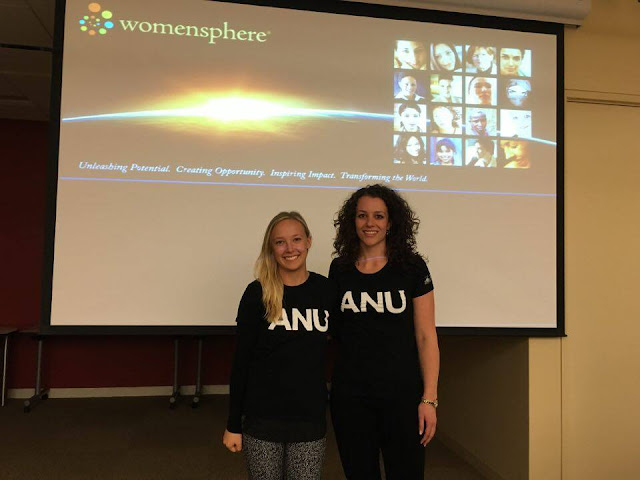CECS and the City Episode 4: Entrepreneurship
The
stories of mega-million dollar businesses popping up out of someone’s garage
are becoming more and more common. They’re usually run by an unkempt high
school or college drop out with too much talent to be sitting around in
university lectures. Most start ups don’t begin this way, despite how the media
makes us feel (so please don’t drop out of university). However, as we move through the digital age,
more and more people have been inspired and encouraged to create something new
and enter the world of entrepreneurialism.
Through
channels like the Tech Launcher program at ANU, the CBR Innovation Network and
the Griffin Accelerator, there is a shift to an environment where innovation
and new ideas are nurtured and encouraged. QPay is a great example of this.
They started out of ANU as a software development company called Imagine Team.
Then QPay (focusing on bill sharing for students) sprang from this, and have now
expanded to be the best ticketing and administrative system for university
clubs and societies. These guys have picked up plenty of grants along the way
too!
So,
just in case this start-up craze is for you, I’ve put together some advice from
the conference that might point you in the right direction.
Earl
Valencia from the Science and Technology Advisory Council helps start ups in
the Philippines. His organisation provides financial, legal and advisory
support to innovators. He has seen thousands of proposals and supported
hundreds of them as they became businesses, so he has certainly got plenty of
experience in who makes it and who doesn’t.
So…which
ones do make it? He came up with a nice list of things for us. Invariably, the
most successful start-ups came from people who:
- Didn’t give up! They failed plenty of times, but they always asked for help.
- Have global ambition. These are people who believe that their idea should scale up in the future in a big way, not just remain a local business.
- Aren’t afraid to do the dirty work. This means being the one that builds that website or enters all that data. There are likely to be a lot of menial tasks on the way to success and you’re the only one who will care enough to do them.
- Know who they impact. The first question is: who is it that benefits from the product? Then this leads on to a million other questions that have to be answered about those people and their lives. A lot of start-ups make too many assumptions about these people and forget to take the time out to get to know them.
- Have a deeply meaningful vision. This has to be something that you believe in, and something that you can convince your investors to believe in too.
So
don’t overlook those 5 things!
Now
we turn to Yobie, the billionaire entrepreneur who has a gene fabricating
machine in his basement. Yeah, that’s not normal.
He
had all sorts of advice and interesting perspectives. A lot of these were only
applicable to those who already had a mini fortune (probably not you, sorry),
but some really important things came out that are applicable to all students,
not just those looking to create a start-up. Ready for another list of advice?
- Be prepared to pivot. This means you have to be flexible with your game plan. Paypal changed their business model 16 times. As you go on, you’ll learn more about the market, demand for certain products and the realities of the consumer world. QPay have done a great job of this as they saw the opportunity to get students signed up by moving into the world of university societies.
- Make sure you tell a story. Whether you’re crowdfunding or selling your product, he says half the job is telling stories. The best crowd funding efforts I’ve seen always have a great video, with a great story!
- If you want to do good, you have to be practical. If there’s one thing I learnt in Cambodia with Engineers Without Borders, it’s that without economics and business viability, humanitarian engineering doesn’t really work. The products or services that make the biggest impact in developing countries don’t usually come out of aid organisations. The best example is the mobile phone. It has made an absolutely huge impact in developing countries. It caught on because it was a marketable product that people were willing to invest in. Earl Valencia’s organisation sees this, which is why they are supporting business and innovation from locals in the Philippines as a way to create social change.
- The most important skill an undergraduate needs is…curiosity! So don’t bother practicing your MATLAB, maths, or CAD skills. The students who want to find out more about the world, try new things and ask the right questions are the ones who go places. This probably fits in with his idea that we won’t need programmers soon as computers will be able to do that for us. I don’t think that means we should stop learning, but it does mean we should make sure we have skills that focus on design and problem solving, not just the extremely technical, sometimes repetitive, work.
- Reply to your emails straight away. Perhaps the most boring piece of advice, but it’s my favourite. It’s all about doing things straight away and efficiently dealing with things as they come. It’ll help you to power through your day if nothing else.
So
there you have it. Nothing they’ve said is shocking. Advice from successful
people is rarely shocking and rarely that practical, but there’s a reason these
things stand out to them. It’s up to you to figure out how you can apply them
to your work.
Emily







